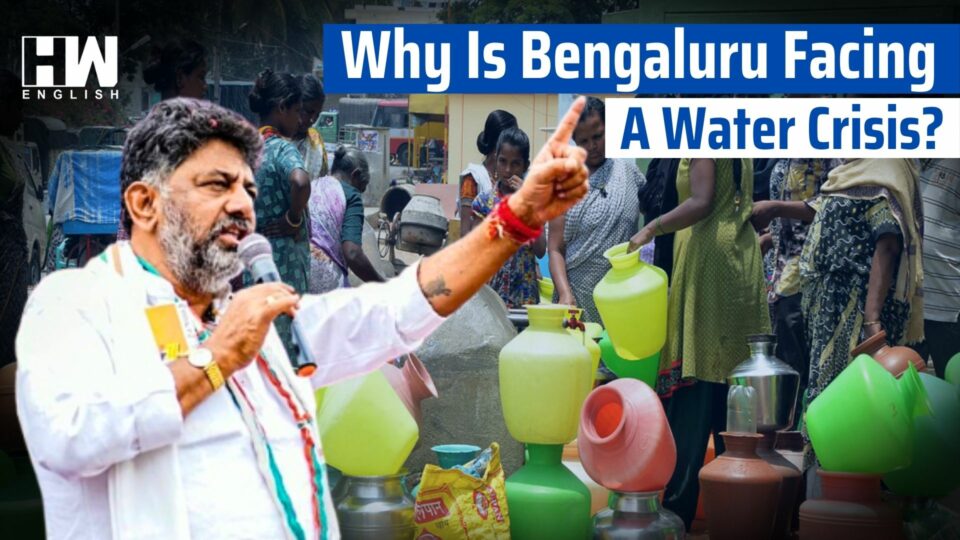Bengaluru, the epicentre of India’s tech landscape, is facing an acute water crisis. Slums, housing complexes, and even Deputy Chief Minister DK Shivakumar are seeing their taps and borewells run dry. Many residents have taken to social media, calling for urgent government action. The water crisis comes ahead of a scorching summer.
Karnataka Deputy Chief Minister DK Shivakumar said on Wednesday that over 3,000 borewells in Bengaluru have dried up, including the one at his home. He said his government is looking into the situation and addressing it proactively.
On March 4. the Bangalore Water Supply and Sewerage Board (BWSSB) was directed to take control of all irrigation and commercial borewells within the city. In subsequent emergency meetings on Tuesday, March 5, further actions were decided, including the cleaning and deploying tankers owned by the Karnataka Milk Federation to distribute water across the city.
These measures include establishing taluka-level control rooms and helpline numbers and forming emergency task forces led by local legislators to address the water crisis.
Why is Bengaluru facing a water crisis?
1) RAINFALL: Insufficient rainfall has led to a sharp decline in the water levels of the Cauvery River, impacting both the drinking water supply and agricultural irrigation.
This insufficient rainfall has meant a drought across Karnataka. Out of the 236 taluks, a staggering 223 have been hit by drought, with 219 facing severe impacts.
2) BOREWELLS: The depletion of borewells worsens the situation, further reducing available water sources.
3) GROUNDWATER: Receding groundwater levels contribute significantly to water scarcity.
4) INFRASTRUCTURE: Inadequate infrastructure, including the lack of widespread water utility services and ineffective implementation of government water schemes, exacerbates the crisis.
The failure of the southwest and northeast monsoons in Karnataka has compounded the water crisis, creating a dire situation for the city.
All irrigation and commercial borewells are under government control to overcome the crisis. Additionally, every private water tanker in the city is being mandated for registration, a crucial step in managing water distribution.
ALSO READ: Bengaluru: DK Shivakumar Assures Adequate Water Supply
Meanwhile, residents are adopting emergency measures to conserve every drop of water. From reducing water usage in daily chores to repurposing wastewater for cleaning.
Officials also warned that the situation could worsen if there is no substantial rainfall shortly, as nearly half of the borewells have already dried up.
According to reports, booking water tankers now requires a two-day advance notice, and the water delivery cost has surged from 1600 to 2000 rupees. Despite the increased payment, timely water delivery remains uncertain.
As an independent media platform, we do not take advertisements from governments and corporate houses. It is you, our readers, who have supported us on our journey to do honest and unbiased journalism. Please contribute, so that we can continue to do the same in future.

